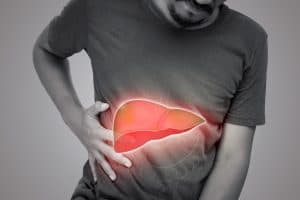Cerovive failure another blow for AstraZeneca
pharmafile | October 26, 2006 | News story | Research and Development, Sales and Marketing | AstraZeneca, Cerovive, neuroscience
A drug which had held out the promise of reducing the disabling effects of stroke on patients will be abandoned by AstraZeneca after it failed to show any significant benefits in trials.
The news is another blow to the company’s pipeline, and adds to a string of major late-stage failures in recent years, including anti-clotting drug Exanta and cancer drug Tarceva.
AstraZeneca had licensed Cerovive (NXY-059) from US specialist pharma company Renovis, and had hoped the drug would boost its thin in-house pipeline.
But results from a phase III trial showed it had no significant effect on either the primary endpoint, reducing stroke-related disability, or a secondary endpoint of improving neurological status.
Tomas Odergren, AstraZeneca’s global product director for the drug said: “NXY-059’s lack of efficacy in the SAINT trial II is disappointing for stroke patients in view of the significant unmet medical need. AstraZeneca plans no further development of NXY-059 in acute ischaemic stroke but will analyse the pooled data from the SAINT I and SAINT II trials in close co-operation with the SAINT Steering Committee and Renovis, to ensure learnings for further stroke research are identified and communicated.”
AstraZeneca says it will work with the SAINT II steering committee to ensure the data is presented at the International Stroke Congress in February 2007.
John Patterson, Executive Director of Development, AstraZeneca, said: “These clinical trial results, while not without precedent given the challenging nature of the science, are disappointing for patients looking for new treatments for stroke and for AstraZeneca as we seek to build our research and development pipeline.”
Cerovive was a first-in-class treatment to reduce the effects of stroke, but doubts have hung over the drug since phase II trial results, published in May 2005, showed mixed results.
AstraZeneca doubled the number of patients in the SAINT II trial from 1,700 to 3,200 patients – a costly precaution in terms of time and money, but one it had hoped would pay off.
The company has focused on signing new in-licensing deals to re-fill its drug pipeline in 2006, and acquired cancer-specialist UK biotech company Cambridge Antibody Technology in June.
Related Content

NICE recommends Benralizumab for Rare Form of Vasculitis
The National Institute for Health and Care Excellence (NICE) has recommended AstraZeneca’s benralizumab (Fasenra) as …

NICE approves AstraZeneca’s dual immunotherapy for advanced liver cancer
AstraZeneca has received a positive recommendation from the National Institute for Health and Care Excellence …

Johnson & Johnson submits FDA application for Caplyta to prevent schizophrenia relapse
Johnson & Johnson has submitted a supplemental New Drug Application to the US Food and …






